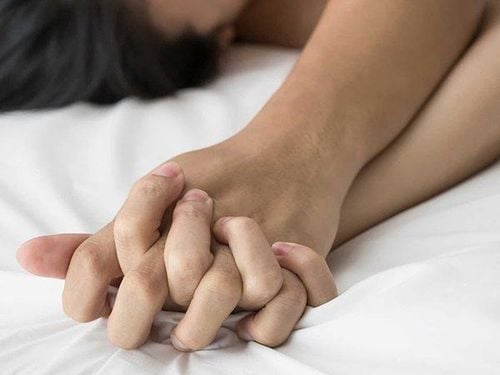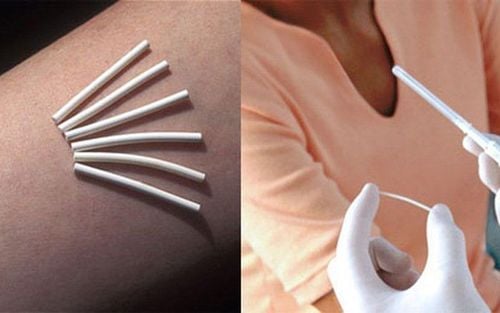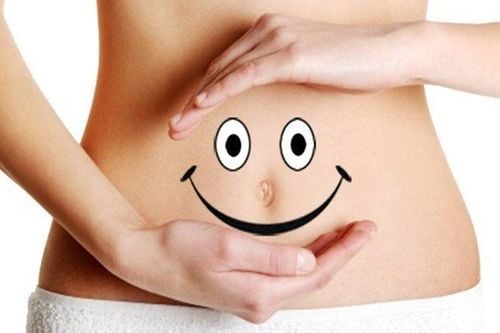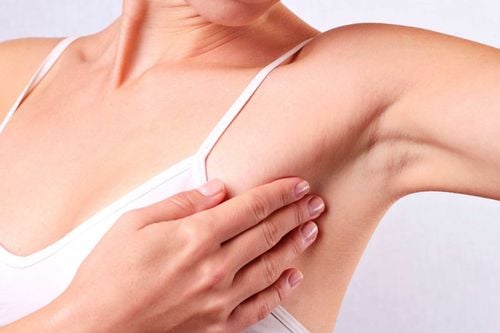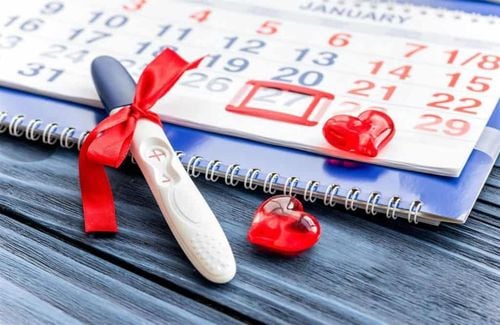This is an automatically translated article.
The article is professionally consulted by Master, Doctor Nguyen Thi Hong On - Obstetrician and Gynecologist - Department of Obstetrics and Gynecology - Vinmec Phu Quoc International General Hospital.Ovulation is a normal physiological phenomenon in the female body of reproductive age, and is an indispensable factor for a woman to become pregnant. Compared with periods of ovarian inactivity (pre-puberty, menopause), or an immature or weakened endocrine system (puberty) or impaired (perimenopause), ovulation in adulthood is a sign of pregnancy. Complete endocrine system and mental, healthy lifestyle.
1. What is ovulation?
Ovulation is part of the menstrual cycle, which occurs when an egg is released from the ovary. When an egg is released, it may or may not be fertilized by sperm.If fertilized, the egg will begin the process of cell division, and at the same time move to the uterus, until the blastocyst is formed, it will implant in the uterus, and if successful, the implantation will begin. pregnancy process. If the egg is not fertilized, the egg is broken down, and the lining of the uterus is shed during menstruation.
2. How does ovulation happen?
How does ovulation happen? Ovulation typically occurs around day 14 of a 28-day menstrual cycle. However, in fact, each person's menstrual cycle is very different, and not everyone has a typical 28-day menstrual cycle, so determining the exact time is quite difficult. Generally speaking, ovulation occurs between four days before and four days after the midpoint of the menstrual cycle.Trắc nghiệm: Thử hiểu biết của bạn về âm đạo
Âm đạo nằm trong hệ thống bộ phận sinh dục của phụ nữ và đây cũng là nơi xảy ra nhiều vấn đề liên quan đến sức khỏe phụ khoa. Qua bài trắc nghiệm dưới đây, bạn đọc sẽ tích lũy nhanh một số kiến thức liên quan đến âm đạo và sức khỏe phụ khoa nói chung.
Bài dịch từ: webmd.com
The following content is prepared under supervision of Thạc sĩ, Bác sĩ nội trú, Đinh Thanh Hà , Sản phụ khoa , Khoa Sản phụ khoa - Bệnh viện Đa khoa Quốc tế Vinmec Nha Trang
3. How long does ovulation take place?
How long does ovulation take? Ovulation begins with the release of follicle-stimulating hormone (FSH), typically between day 6 and day 14 of the menstrual cycle. This hormone helps the eggs in the ovaries mature to be released.
Once the egg is mature, the body will massively secrete large amounts of luteinizing hormone (LH), which initiates the egg release process. Ovulation can take place 28 to 36 hours after the time of luteinizing hormone secretion.
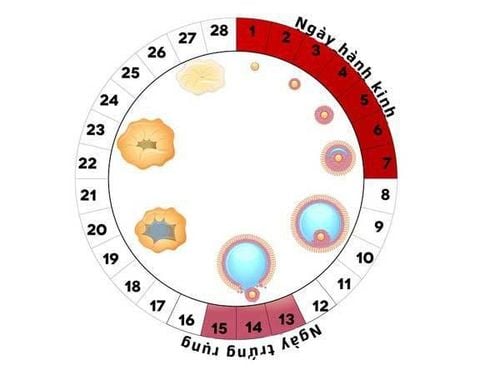
4. Are there any possible signs or symptoms?
The impending ovulation can cause changes in vaginal discharge. The discharge often becomes clear, and in some cases even looks like egg whites. After ovulation, the amount of discharge may decrease, and the discharge may become thicker, more cloudy.
Besides, ovulation can also cause:
Spotting or light bleeding
Breast tenderness
● Increased sex drive
Ovarian pain, which is characterized by discomfort or pain on one side abdominal cavity, and it is also known as mittelschmerz
Not everyone develops symptoms when ovulation occurs.
5. Is it possible to ovulate more than one egg in a menstrual cycle?
The answer is yes, because some people can release more than one egg in a menstrual cycle.Some studies suggest that many people can even ovulate 2, even 3 or more eggs in one cycle. There are studies that show that up to 10% of study participants ovulate 2 eggs in a menstrual cycle.
Ovulation can occur completely naturally, or with the intervention of assisted reproductive methods. If the ovulated eggs are fertilized and develop and implant well, the woman will have a multiple pregnancy (twins, triplets, quadruplets or more).
6. Is it only on the right day of ovulation that a woman is able to conceive?
The answer is no. Once released from the ovary, an egg can only be fertilized for a period of 12 to 24 hours. However, under ideal conditions, sperm can survive in a woman's reproductive organs for up to 5 days. For that reason, if a woman has sex on the days before ovulation or on the day of ovulation, there is a chance of conception.7. What does the window of conception mean?
The fertile window is a period of 6 days that is calculated before and including the day of ovulation, and this is the period during which a woman has a high chance of successfully conceiving if having sex.Sperm in ideal conditions can survive for several days in the fallopian tube after sex, ready to fertilize an egg once it is released. Once released from the ovary, the ovum has a period of up to 24 hours in the fallopian tube to fertilize it. After this time, the egg is no longer able to fertilize, and the conception window ends.
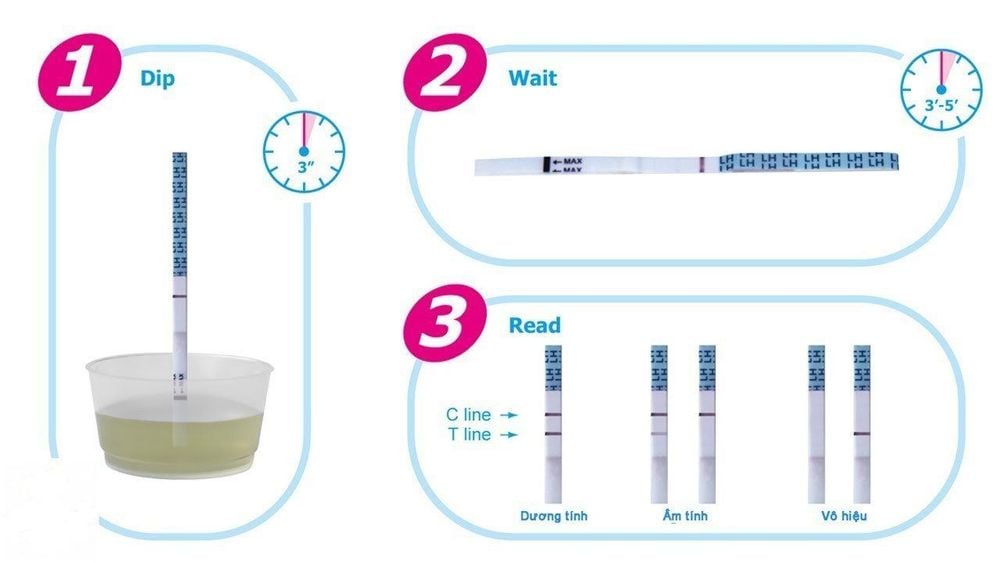
8. Is there a way to track ovulation?
Ovulation process and time of ovulation can be confirmed accurately by ultrasound or hormone blood tests, but they need to be done in a medical facility. In addition, a woman can monitor herself at home in the following ways (although the accuracy will be lower):
● Baseline temperature chart: The woman will take her own temperature measurement on every morning during your menstrual cycle and then record it on the chart. Ovulation occurs when a woman sees her basal body temperature rise above average for 3 consecutive days.
● Use ovulation predictor kit (OPK): Women can buy these test strips at pharmacies to self-monitor. In principle, these test strips should detect the presence of luteinizing hormone in the urine. Ovulation may occur within a few days since the result line is darker or darker than the control line.
9. If a woman wants to conceive, how often should a woman have sex?
Theoretically, a woman only needs to have sex once during her conception window to conceive. However, in fact, if couples want to increase their chances of conceiving successfully, they can have sex every day during the entire conception window, and the best and most successful period is 2 days before ovulation and the day of ovulation.
Please dial HOTLINE for more information or register for an appointment HERE. Download MyVinmec app to make appointments faster and to manage your bookings easily.
Reference source: webmd.com/ healthline.com




